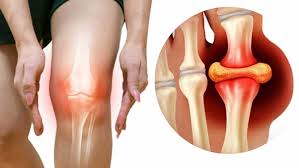Uric acid is a chemical created when the body breaks down purines, which can be found in meals and beverages such as red meat, seafood, and alcohol. Normally, uric acid dissolves in the blood, travels through the kidneys, and exits the body as urine. However, when the body produces too much uric acid or the kidneys do not clear it properly, it can cause health problems.
High levels of uric acid in the blood, known as hyperuricemia, can lead to the formation of crystals. These crystals can settle in the joints and cause gout, a painful illness. Gout is a kind of arthritis marked by sudden, acute pain, redness, and swelling in the joints, which typically begins in the big toe. If untreated, gout can become chronic, affecting more joints and causing lasting joint damage.
High uric acid levels have also been linked to various health issues, such as kidney stones and renal illness. Crystals can also form in the kidneys, causing painful stones that may require medical attention. Over time, elevated uric acid levels might impair kidney function, potentially leading to chronic kidney disease.
Several factors contribute to elevated uric acid levels:
Diet: Eating a lot of purine-rich foods, such as red meat, organ meats, seafood, and alcohol, can raise uric acid levels.
Obesity: Obesity increases stress on the kidneys, making it more difficult for them to remove uric acid.
Genetics: Some persons are predisposed to manufacture excess uric acid or have difficulty eliminating it.
Medical Conditions: High blood pressure, diabetes, and some forms of cancer can cause elevated uric acid levels.
Drugs: Certain diuretics (water pills) and drugs for other diseases might raise uric acid levels.
Impact on Daily Life:-High uric acid levels can have a substantial impact on one’s daily life. Gout episodes can cause pain and discomfort that makes it difficult to walk or do routine duties. Recurrent gout can cause persistent pain, which reduces quality of life. The possibility of kidney stones adds another layer of concern, as these stones can cause significant discomfort and necessitate surgery.
Furthermore, controlling excessive uric acid frequently requires dietary modifications and medication, which can be difficult to maintain. Avoiding beloved meals or drinks, particularly those high in purines, might be challenging for many individuals.
Prevention and Management:-
Dietary Changes: Reducing or eliminating purine-rich meals can help lower uric acid levels. Drinking enough of water might also assist the kidneys remove uric acid.
Healthy Weight: Keeping a healthy weight through diet and exercise will reduce your chances of hyperuricemia and gout.
Drugs: Some people may require uric acid-lowering or gout-prevention drugs.
Regular check-ups: Monitoring uric acid levels with blood testing can help identify potential problems early.
Conclusion:-High uric acid levels are a rising concern in modern society, owing to variables such as nutrition, lifestyle, and heredity. While it can cause painful illnesses such as gout and kidney stones, there are techniques to control and avoid these complications. Understanding the causes and implementing simple lifestyle adjustments can help you control your uric acid levels and live a healthier life.
Related Content:
- Defending Against Bluetooth Dubbing scams
- The Dangers of Baby Walkers
- Unraveling Premenstrual Anxiety: Insights
- Dangers Lurking in Packaged soups
- The Hidden Danger risks of Cotton Candy

